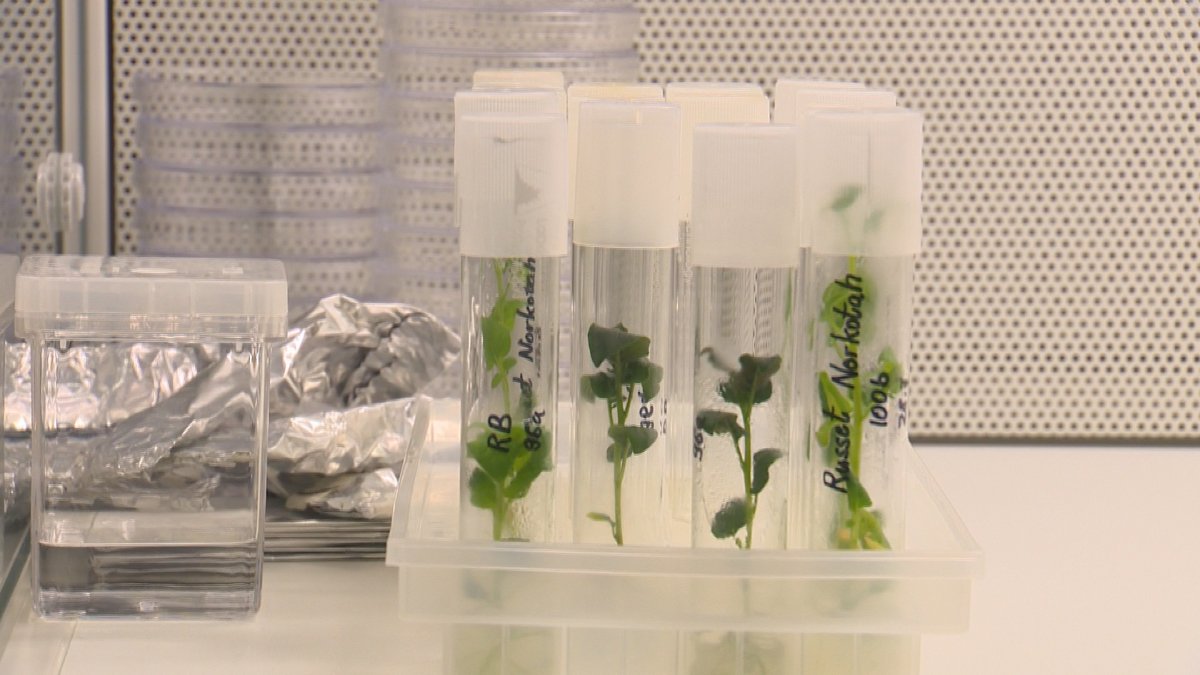It’s an industry that professionals say injects more than $1 billion into Alberta’s economy each year.

“The potato industry in this province is not just in southern Alberta, but province-wide,” said Terence Hochstein, executive director with the Potato Growers of Alberta. “We have about 55,000 acres of production within this province, making us one of the largest growing areas in Canada.”
Hoping to expand on that market, the University of Lethbridge has opened the doors to its Potato Research Lab on Friday, which showcases the work being done to support producers when growing the tasty spuds.
“It’s a program that has been 10 years in the works,” Hochstein said. “It’s between the industry, the Potato Growers, Cavendish Farms, Lamb Weston, McCain’s and the university. It’s a collaborative project to create a first-of-its kind program in Canada, specifically focusing on potato research.”
Looking to harvest local solutions to common problems, the project brings together not only industry professionals, but also generations of future researchers, helping build a stronger spud sector in the years to come.
“The uniqueness of this position is not only to conduct basic studies of potato biology and physiology,” said Dr. Dmytro Yevtushenko, research chair for potato science at the University of Lethbridge, “but also to translate this knowledge in an official way into practical application in fields.”
- Alberta, coal lobbyists talked for years about more open-pit mining in the Rockies: documents
- L.A., Belfast… Rainbow Lake? Why a remote Alberta town joined cities in Plant-Based Treaty
- Ecuador rations power, declares emergency as drought limits hydro output
- SFU researchers say ant pheromones could help prevent tick bites
Unique in Alberta is the method of potato growth using irrigation. One farmer says the contraction of product diseases is a worry many growers in the area face, but it’s something he hopes working with this research project will help alleviate.
“There’s a lot of pathogens out there and diseases,” said Harold Perry, from Perry Spud Farms, “so the idea is to keep the seed as clean as possible to get to us and then you have a disease-free seed, and a lot of the research here is to help us get to that stage.”
It’s a problem the project hopes to help tackle, along with many others.
Ten years in the making, and with a growing list of partners, the project is expanding to a bigger lab in the university’s new science building next fall.


Comments